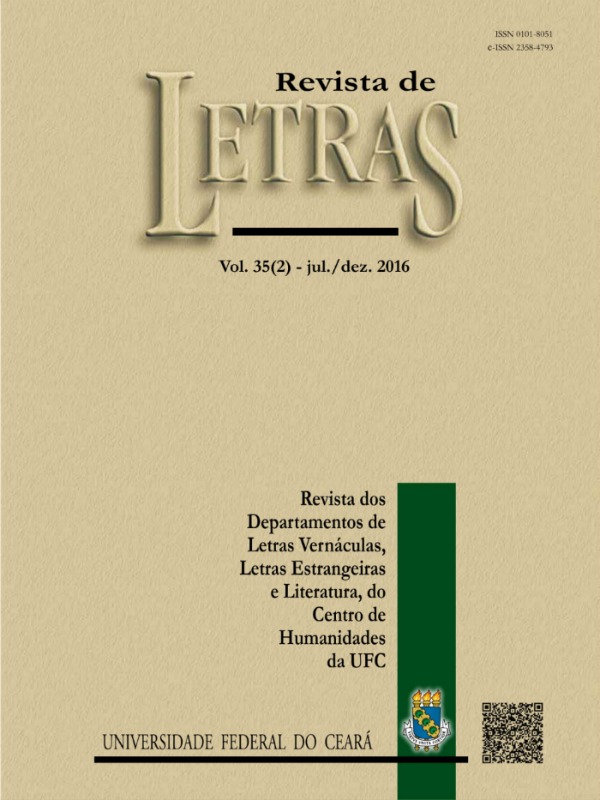POLÍTICAS LINGUÍSTICAS DO ENSINO DA ESCRITA DO PORTUGUÊS NA FORMAÇÃO DO ESTADO-NACIONAL BRASILEIRO / LANGUAGE POLICIES OF PORTUGUESE WRITING EDUCATION IN THE FORMATION OF THE BRAZILIAN NATION-STATE
Palavras-chave:
Política Linguística, Ensino, Estado-nacional.Resumo
RESUMO
Tendo em vista que a língua é fruto de um contexto social e que as escolhas sobre as línguas não são aleatórias (SPOLSKY, 2012), o presente trabalho visa a discorrer sobre as políticas linguísticas, que se constituem em gestões, práticas e crenças e ideologias do ensino da escrita no Brasil nos séculos XIX e XX. Foram feitos um levantamento bibliográfico a respeito do ensino da escrita no período e uma análise a partir da teoria da Política Linguística. Observamos que, entre os fatores extralinguísticos que nortearam o ensino da escrita da língua portuguesa, estava o interesse do Estado na construção do Estado-nacional e do cidadão que o representasse, ou seja, de maneira consequente, estava o interesse na construção de cidadãos unificados, usuários de uma língua homogênea, em favor de uma política centralizadora. Outros fatores que foram assaz importantes nas escolhas linguísticas e metodológicas de ensino estavam ligados a discursos externos ao ambiente escolar, como o discurso médico e a influência do estilo de escrita da língua inglesa. Concluímos com uma reflexão em aberto a respeito do papel desses planejamentos centralizadores que tendem a apagar culturas e línguas locais.
ABSTRACT
Given that language is product of a social context and that the choices about languages are not random (SPOLSKY, 2012), this work aims to discuss language policies, which constitute management, practice, beliefs and ideologies, about the teaching of writing in Brazil in the nineteenth and twentieth centuries. A bibliographic survey was made regarding the teaching of writing in the mentioned period and an analysis based on the theory of Language Policy. We observed that among extralinguistic factors that guided the Portuguese language writing was the interest of the State in the making of a national State and of a citizen who represented it. As a consequence, the making of unified citizens, users of a homogeneous language in favor of a centralizing power. Other factors that were very important in the linguistic and methodological choices of teaching were linked to discourses outside the school environment, such as the medical discourse and the influence of the writing style of the English language. We concluded with an open reflection on the role of the centralizing plans that tend to erase local cultures and languages.
Downloads
Downloads
Publicado
Como Citar
Edição
Seção
Licença
Autores que publicam nesta revista concordam com os seguintes termos:- Autores mantêm os direitos autorais e concedem à revista o direito de primeira publicação, com o trabalho simultaneamente licenciado sob a Licença Creative Commons Attribution que permite o compartilhamento do trabalho com reconhecimento da autoria e publicação inicial nesta revista.
- Autores têm autorização para assumir contratos adicionais separadamente, para distribuição não-exclusiva da versão do trabalho publicada nesta revista (ex.: publicar em repositório institucional ou como capítulo de livro), com reconhecimento de autoria e publicação inicial nesta revista.
- Autores têm permissão e são estimulados a publicar e distribuir seu trabalho online (ex.: em repositórios institucionais ou na sua página pessoal) a qualquer ponto antes ou durante o processo editorial, já que isso pode gerar alterações produtivas, bem como aumentar o impacto e a citação do trabalho publicado (Veja O Efeito do Acesso Livre).

.png)





.png)
